|
Hey all. I've been wanting to look at AOS's but it's a bit of a pain since the data has to get cleaned. No matter. It's done. Here's the big picture:
A note on method: In cases where multiple areas were listed, I've counted those separately. So this isn't a tally of all jobs on the market. Rather, it's a tally of all the jobs advertised in one of the five main categories on Philjobs. So (e.g.) there are a hair under 50 jobs in metaphysics/epistemology. But some ads listed meta/epist or history of phil as the AOS they were looking for. Here, each of those was counted separately. I opted for this method of counting because I'm assuming that any disjunctions in AOS's for job ads can draw from two different applicant pools: that is, that AOS pools are exclusive. (I know this isn't always true but go with it as a simplifying assumption for the model.) For (for instance) a job ad looking for an epistemologist or an ethicist gets listed here as a job for an epistemologist and as a job for an ethicist. So if Jack is an epistemologist and Jill is an ethicist, the job ad counts as a listing for Jack and for Jill individually. In a nutshell, I'm counting jobs by AOS from the point of view of job seekers under the assumption that multiple AOS's have mutually exclusive candidate pools.
Let's zoom in on a few of these, starting with value theory.
Ethics dominates, followed by social and political philosophy. We'll get to "other" in a moment. Sadly, phil of art is at the bottom with two ads.
Value_other is a catch-all for specific areas that don't fit neatly into any of the other categories. It was a hodgepodge of seemingly grant-specific areas, e.g. citizenship, media ethics, etc. But there were 3 ads for AI ethics and 2 for ethics and tech. So there are more job ads for ethics and tech/AI than there are for phil of art or phil of sex and gender. Let's take a closer look at history and traditions to see what's up there:
Carving up this data was a bit trickier. Some ads just had "history of philosophy" without any detail. Others said "non-Western". For the former, I listed ancient, medieval, and modern as covering a generic "history of philosophy." And for non-Western, I listed Asian, Africana, Indigenous, Indian, and Latin American as proxies. So again, keep in mind that these aren't total job counts but rather (roughly) jobs for which one could apply if one were an expert in (say) ancient or Latin American phil. Given these assumptions, ancient is in greatest demand.
Non-western traditions are on the map, but not in huge demand. "Africana" showed up in 13 ads while "indigenous" showed up in four. Though it's worth noting that Africana is in higher demand than a number of subcategories in value theory. Now science, logic, and math:
Philosophy of science is leading the way with relatively few opportunities for other subfields. What's up with the other category? This is a grab bag of: history of science or medicine or technology; AI; the metaphysics of science; postdoc ads that are too specific to classified anywhere else (e.g. a project on episodic memory)
The last category: metaphysics and epistemology.
Seven jobs for philosophers of mind? Nine for epistemologists? Yeesh. what's in the "other" category? Five philosophy of technology positions, a social epistemology, and a couple of animal cognition.
What's interesting about this from my view is when there are repeated instances in the "other" category. This suggests the emergence of an important subfield that isn't yet counted among the standard options, or at least not in any obvious way. Decision theory has a subcategory on Philjobs, but philosophy of technology doesn't. Nor does history of science/STS, even though phil tech and history of science each had more ads than decision theory. I'd say that history of science/STS and phil tech are established subfields. A colleague of mine who works in phil tech once described it as fringe. Kirby, if you're reading this, I don't think it's fringe any more.
Let's now filter AOS by junior positions and post-docs. Here's what that looks like:
So trends for junior positions largely follow that of all positions. Most are in value theory, followed by open and history/traditions. Things are a bit different for postdocs, with the greatest number of positions being advertised as open. In talking with my friend Nader Shoaibi, I wonder if digging into the details makes the picture a bit drearier than the numbers here say. I'll use myself as a test case. If I were going on the market, I'd apply for open jobs and jobs in philosophy of mind. I'd apply for everything but would really be looking at tenure-track jobs--that's where the security is at. Filtering for those values, there are 36 jobs: 33 open and 3 in philosophy of mind. I got my PhD at Fordham, so let's be realistic about my job prospects. I know, I know...that one person went from Oklahoma to Harvard (apologies I can't remember their name). Fantastic for them but clearly an outlier. At a non-prestigious university, I can cut the Ivies and lots of R1s from the list. And let's take jobs outside the US off the table because I'm not a superstar and a university outside the US is unlikely to pay for the costs of hiring a foreigner. That leaves me with 16 openings, all advertised as open. That's all to say that the numbers don't look great in the big picture and things only go downhill when getting into the weeds. I'm hoping to get some help soon for looking at AOS trends since 2015. It's a lot of data to clean. But I'll be sure to let you know when that's available. As always, if there are any other analyses you're interested in, please let me know! Comments are closed.
|
About me
I do mind and epistemology and have an irrational interest in data analysis and agent-based modeling. Old
|

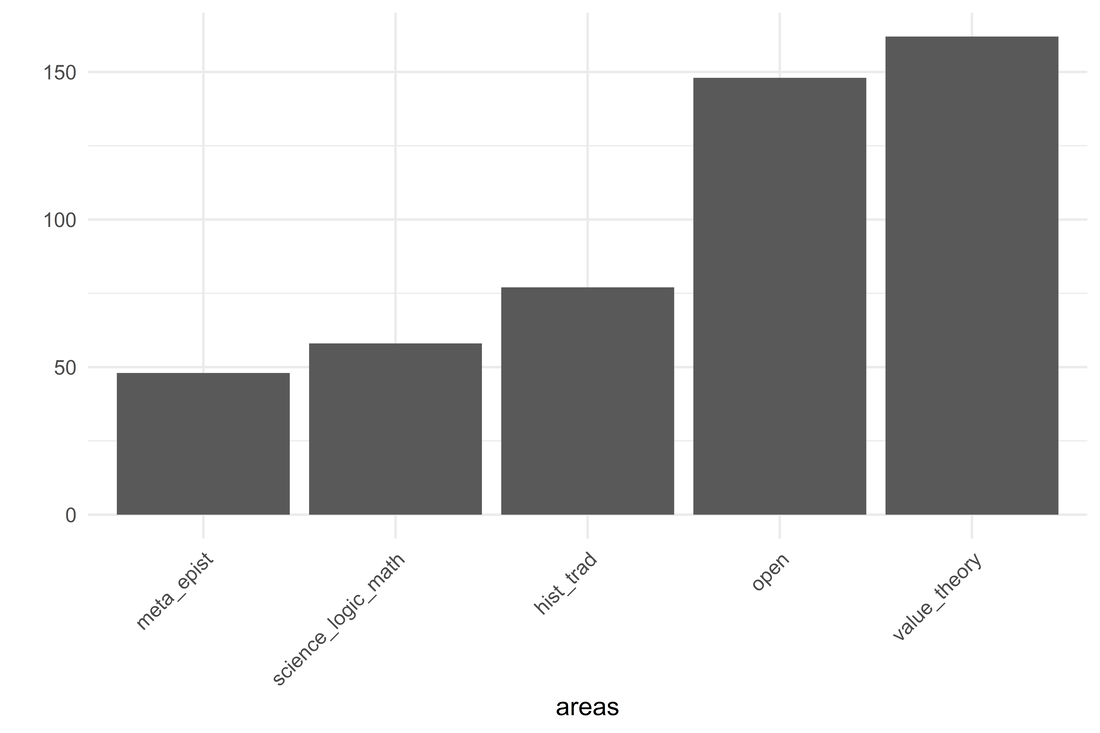
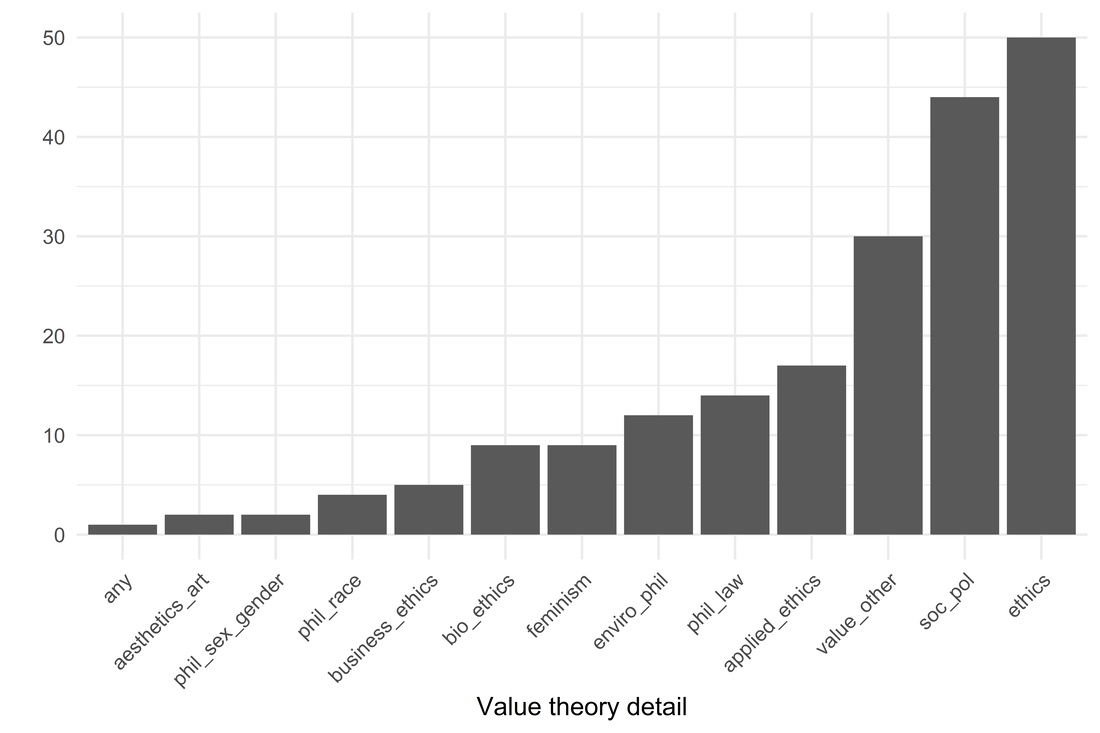
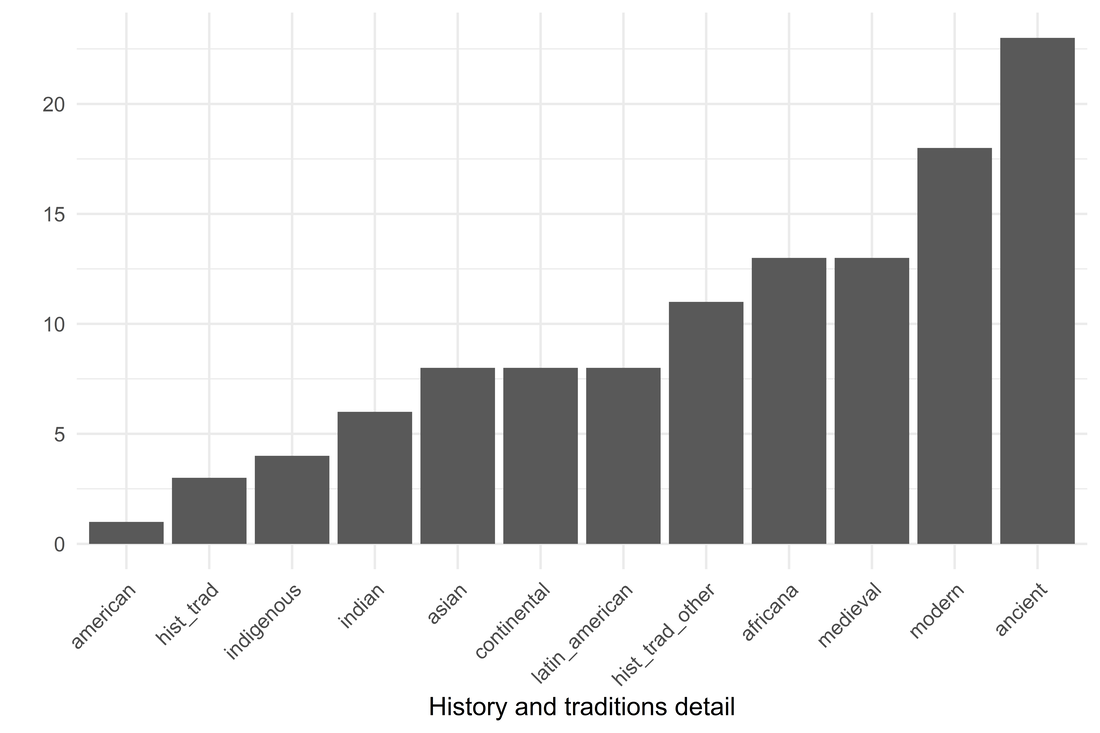
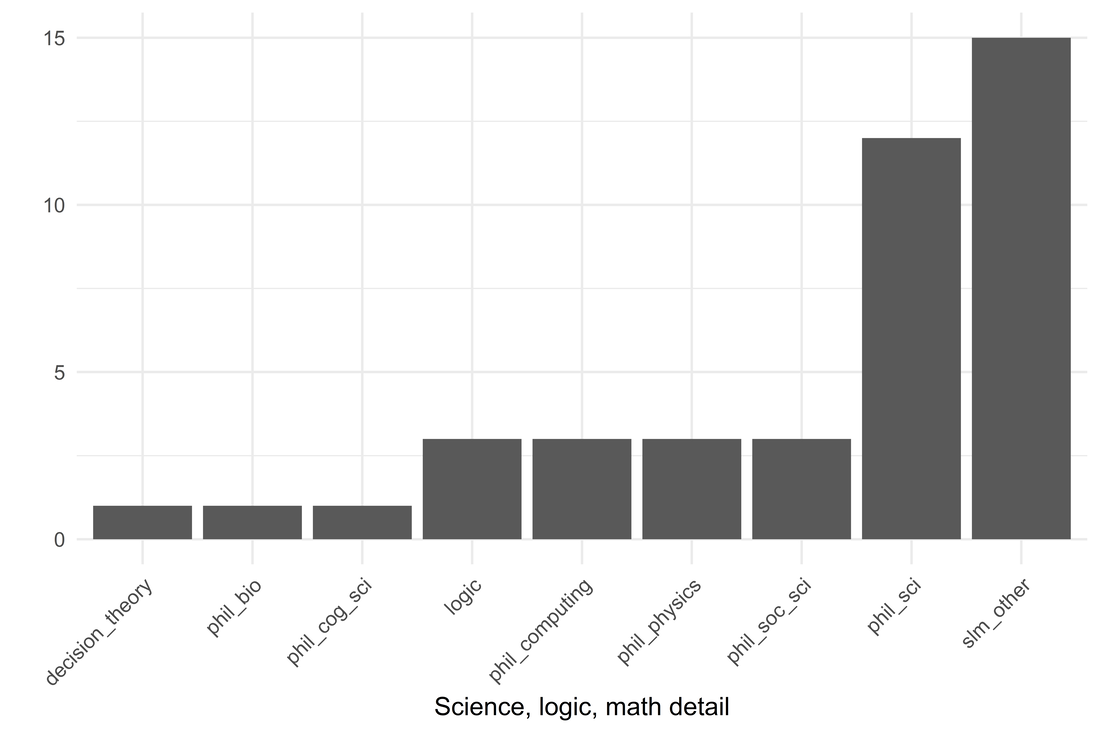
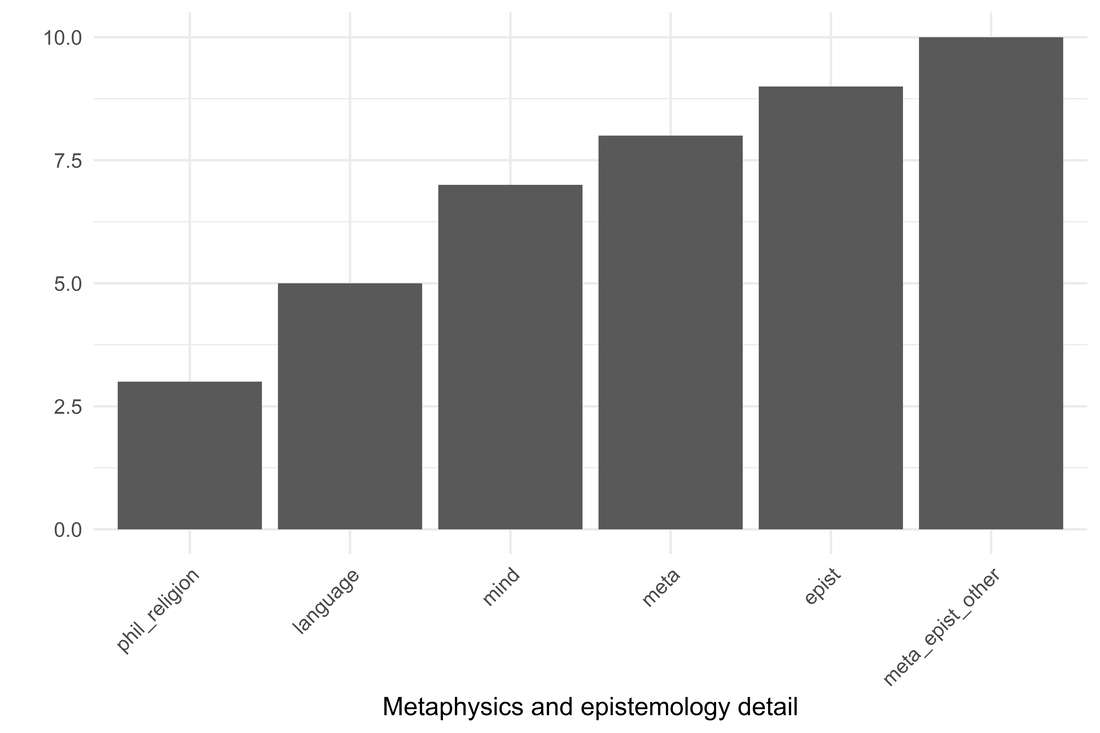
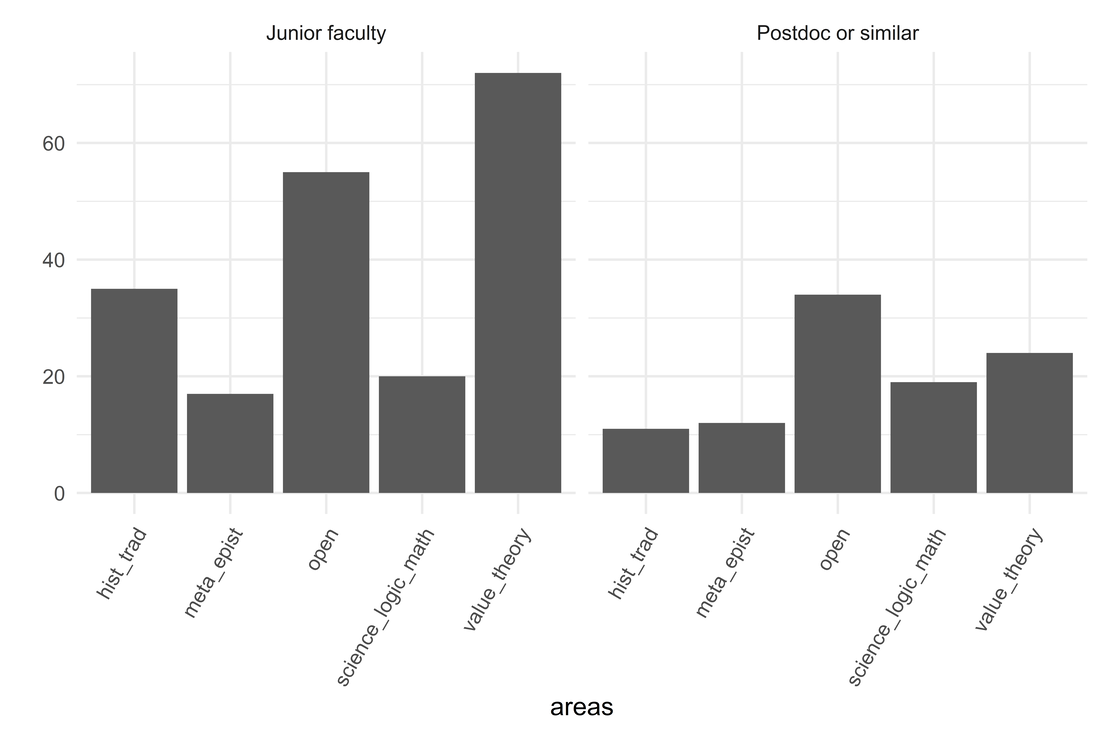
 RSS Feed
RSS Feed
